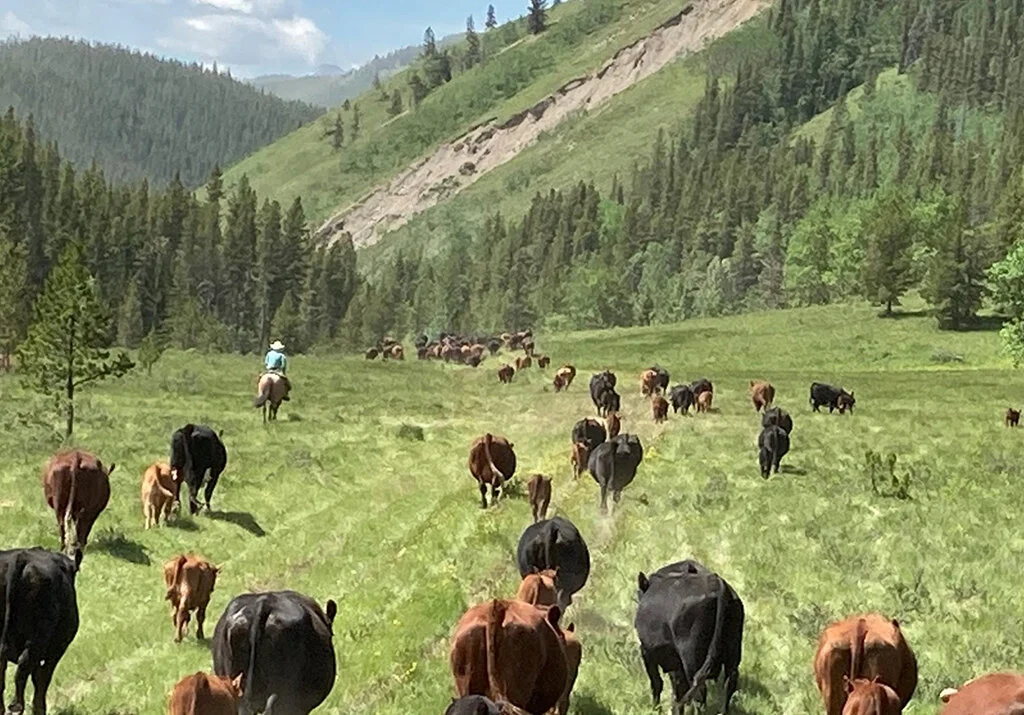A new scientific study on controversial metallurgical coal mines being proposed in southern Alberta’s famed eastern slopes says that the open-pit mines will leave a massive and irreversible footprint on water quality and quantity in the arid region. “Our study has identified significant risks to water quality and quantity and biological diversity in the Oldman River watershed,” Brad Stelfox, the lead author, told The Tyee. Stelfox is the province’s most prominent land use ecologist and founder of the ALCES group which models impact of human activity on natural systems over time.
The Fate of the Canadian Rockies May Rest on This Decision
Next month, a provincial-federal joint review panel on the massive Grassy Mountain Coal Project in the southern Canadian Rockies will table a decision that could determine the fate of Alberta’s famed eastern slopes. If the panel gives the contentious metallurgical coal mine a green light, the doors could open for other existing proposals that could industrialize nearly 1,000 square kilometres of the Rockies and threaten the region’s scarce water supplies.
'An abomination': Sask. water expert warns of contamination following Alberta's coal policy changes
Alberta's plan to allow for open-pit coal mining in the Rocky Mountains could be a serious threat to Saskatchewan's water supply, says the director of the Global Water Futures Project at the University of Saskatchewan. "For a water scientist to see this happening, it's just an abomination to have these types of developments suggested in the headwaters of the rivers that supply drinking water and the economy for most of Saskatchewan," John Pomeroy told CBC's Blue Sky. Last spring, the Alberta government revoked a 1976 policy that blocked open-pit coal mining on the eastern slopes and peaks of the Rockies.
Alberta’s ‘back door’ plan to free up billions of litres of water for coal mines raises alarm
In Alberta, water users are granted the right to withdraw water from rivers and streams through a licensing system. In some watersheds, including the Oldman, that system is closed. There’s a finite amount of water available, and all of the licences are spoken for. The issue is not new. A water policy directive created by the Alberta government in 2006 found “limits for water allocations had been reached or exceeded on the Bow, Oldman and South Saskatchewan River sub-basins, putting at risk Alberta’s obligation to provide water to neighbouring provinces and conserve the aquatic ecosystem.”
Calgary’s water likely safe following coal policy changes, High River area a concern
Following public uproar of the Alberta government quietly pulling the 1976 coal policy, opening up more areas of the province for coal mining, a Calgary committee has started work to find out how those changes could affect the city on the Bow and Elbow Rivers. “The good news is, we found out today that although there’s different (land use) categories, the main category of the national parks and everything for our river system in the Bow is not affected with this policy,” Ward 1 Coun. Ward Sutherland said. “Obviously we’re very pleased with that.”
Alberta government wants to rewrite the water use rules along eastern slopes of Rockies
The Alberta government wants to rewrite the rules on water use along the eastern slopes of the Rockies as part of its economic recovery plan, including a push for new coal developments in the area. Water use is highly restricted in southern Alberta due to concerns about supply, and new water licences cannot be issued, they have to be purchased from existing licence holders on the open market. The new plan put forward by the Alberta government would affect water pulled from the Oldman watershed above the dam.







